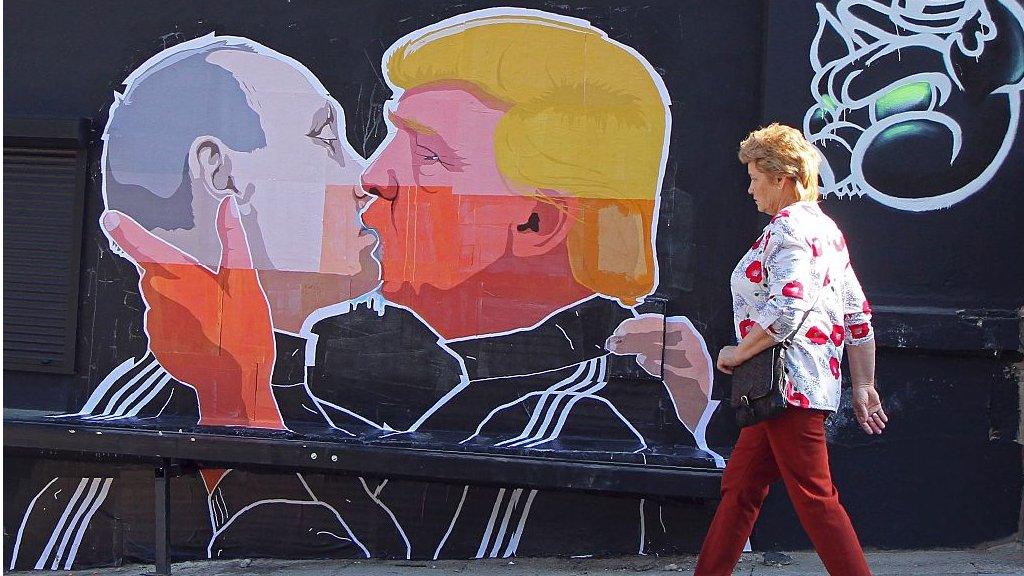Who are the figures pushing Donald Trump and Vladimir Putin together?
- Published
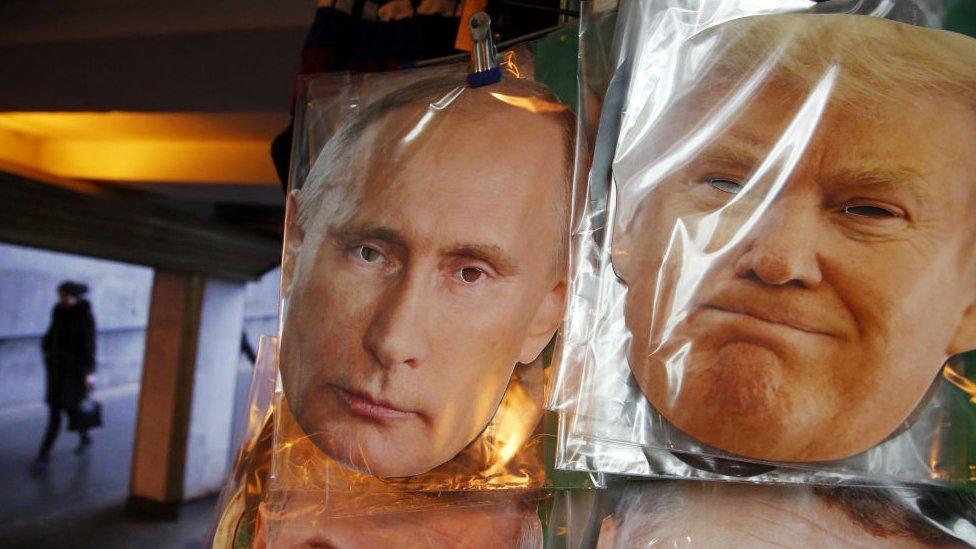
The question of whether Russia's leader Vladimir Putin has got material with which he could blackmail Donald Trump is for now unknowable and misses the point by a country mile: the two men think alike.
Mr Trump's belief in American traditionalism and dislike of scrutiny echo the Kremlin's tune: nation, power and aversion to criticism are the new (and very Russian) world order.
You could call this mindset Trumputinism.
The echo between the Kremlin and Trump Tower is strong, getting louder and very, very good news for Mr Putin.
As Trump signalled to Michael Gove on Monday,, external a new nuclear arms reduction deal seems to be in the offing linked to a review of sanctions against Russia.
The dog that did not bark in the night is Mr Trump's peculiar absence of criticism of Mr Putin, for example, on the Russian hacking of American democracy, his land-grab of Crimea and his role in the continuing war in Eastern Ukraine.
What is odd is that Mr Trump, in his tweets, favours the Russia line over, say, the CIA and the rest of the American intelligence community.
But why on earth criticise the world leader with whom you most agree?
Three men have egged along Trumputinism: Nigel Farage, who is clear that the European Union is a far bigger danger to world peace than Russia; his friend, Steve Bannon, who is now Mr Trump's chief strategist; and a Russian "penseur", Alexander Dugin.
With his long hair and iconic Slavic looks, Mr Dugin is variously described as "Putin's Brain" or "Putin's Rasputin".
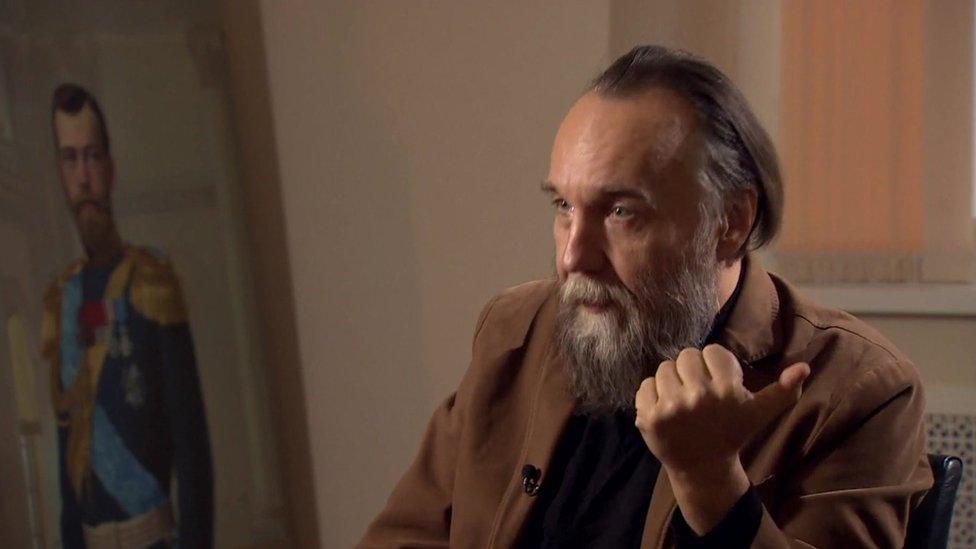
Alexander Dugin is described as "Putin's Brain"
He has his own pro-Kremlin TV show which pumps out Russian Orthodox supremacy in a curious mixture of Goebbels-style rhetoric and Songs of Praise.
Mr Dugin is widely believed to have the ear of the Kremlin.
He is also under Western sanctions for the ferocity of his statements in favour of the Russian invasion of Ukraine, which has cost 10,000 lives to date.
Messrs Farage, Bannon and Dugin are all united that the greatest danger for Western civilisation lies in Islamist extremism.
Mr Bannon aired his views in a right-wing mindfest on the fringes of the Vatican in 2014.
He claimed that so-called Islamic State has a Twitter account "about turning the United States into a 'river of blood'".
"Trust me, that is going to come to Europe," he added. "On top of that we're now, I believe, at the beginning stages of a global war against Islamic fascism."
Democratic values at risk?
The danger is that in allying yourself with the Kremlin in the way they fight "Islamist fascism" in say, Aleppo, you end up siding with what some have called "Russian fascism" or, at least, abandoning democratic values and the rules of war and, in so doing, become a recruiting sergeant for ISIS.
It is a risk on which Mr Dugin does not seem willing to reflect. My interview with him in Moscow did not end well.
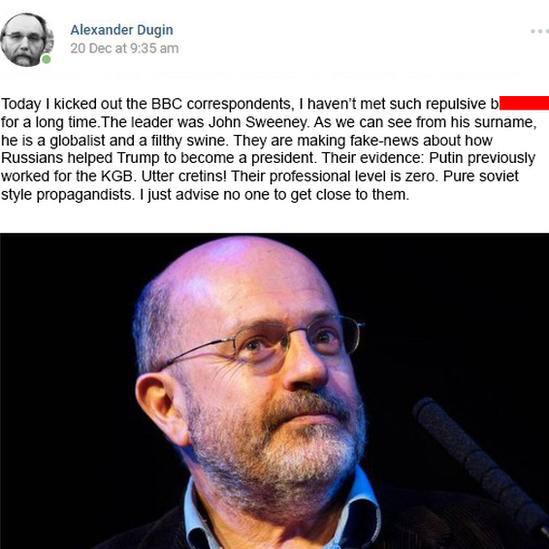
Dugin posted a critical blog entry after walking out of his interview with John Sweeney
First, he dismissed the chances that the Russians hacked American democracy as "strictly zero".
I asked him about the depth of Mr Putin's commitment to democracy.
"Please be careful," he responded. "You could not teach us democracy because you try to impose to every people, every state, every society, their Western, American or so-called American system of values without asking…and it is absolutely racist; you are racist."
Too many of Mr Putin's critics end up dead - around 20 since he took power in 2000.
I have met and admired three: Anna Politkovskaya, Natasha Estemirova and Boris Nemtsov.
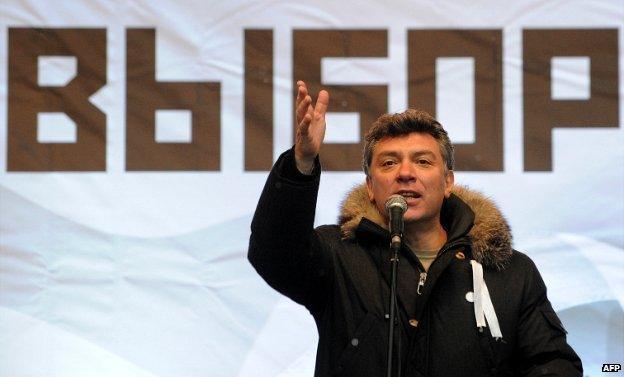
Boris Nemtsov was murdered close to the Kremlin in 2015
Mr Nemtsov was shot just outside the Kremlin's walls.
I asked Mr Dugin what his death told us about Russian democracy.
"If you are engaged in Wikileaks you can be murdered," he countered.
I then invited Mr Dugin to list the American journalists who have died under Barack Obama.
Mr Dugin did not oblige but told me that ours was a "completely stupid kind of conversation" and walked out of the interview.
Later, he posted a blog to his 20,000 followers, illustrated with my photograph and accusing me of manufacturing "fake news" and calling me "an utter cretin... a globalist swine".
Such is the language of the new world order.
A few days later I watched the press conference when Mr Trump closed down a question from a CNN reporter by accusing him of manufacturing "fake news".
Under Trumputinism, the echo between Russia and America is getting louder by the day.
Panorama: The Kremlin Candidate? BBC One, 8.30pm, Monday, January 16. If you miss it, you can catch up later online.
- Published8 September 2016
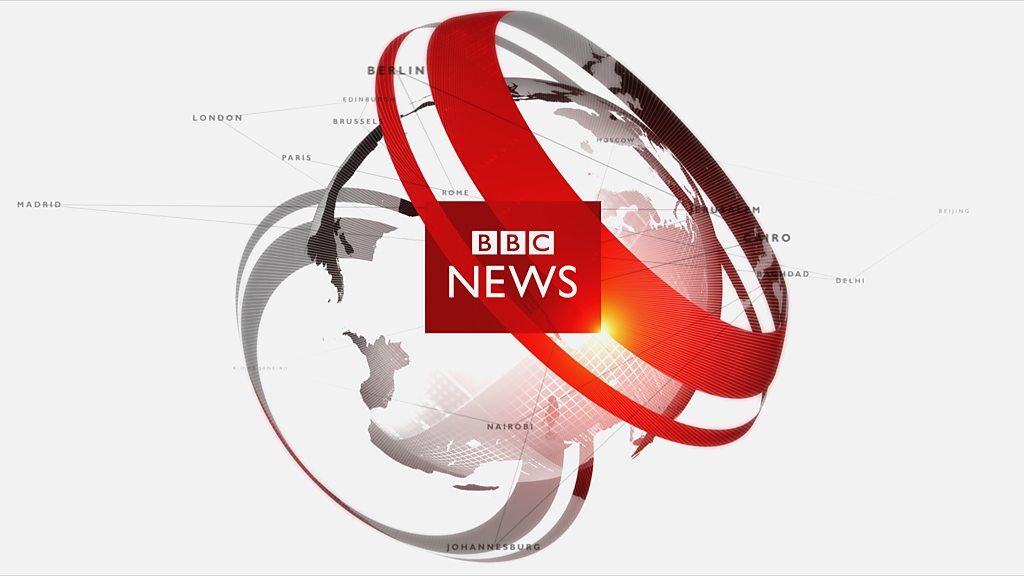
- Published8 September 2016
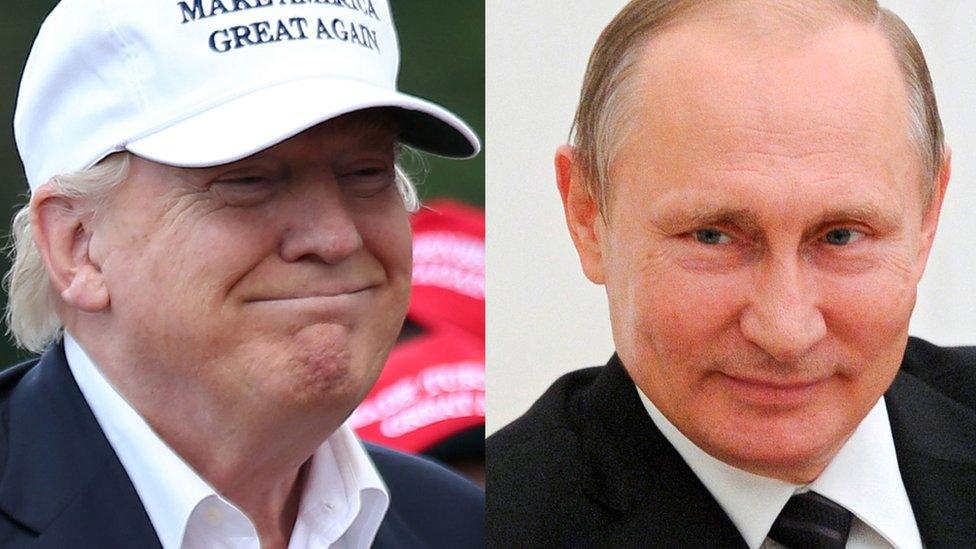
- Published27 July 2016
